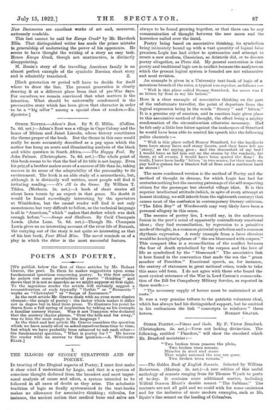OTHER NovEss.—Adam's Best. By S. G. Millin. (Collins. 7s. 6d.
net.)—Adam's Rest was a village in Cape Colony and the home of Miriam and Janet Lincoln, whose history constitutes the theme proper of the book. But the theme in this case would really be more accurately described as a peg upon which the author has hung an acute and illuminating analysis of the black and white question in South Africa.—The Happy Fool. By John Palmer. (Christophers. 7s. 6d. net.)—The whole point of this book seems to be that the fool of its title is not happy. Even his prig.of &brother makes more of &success of life than he, taking success in its sense of the adaptability of the personality to its environment. The book is an able study of a neurasthenic, but, although it is distinctly well written, most people will find it irritating reading.—It's All in the Game. By William T Tilden. (Methuen. 58. net.)—A book of short stories all about lawn tennis by an expert in that game. No doubt it would be found exceedingly interesting by the spectators at Wimbledon, but the casual reader will find it not only monotonous but very difficult to follow, as the technical language is all in "American," which " makes that darker which was dark enough before."—Snags and Shallows. By Cecil Champain Lewis. (John Lane. 7s. 6d. net.)—Though Mr. Champain Lewis gives us an interesting account of the river life of Burmah, the carrying out of the story is not quite so interesting as that of his last book, Four Blind Mice. The novel reminds us of a play in which the decor is the most successful feature.


































 Previous page
Previous page